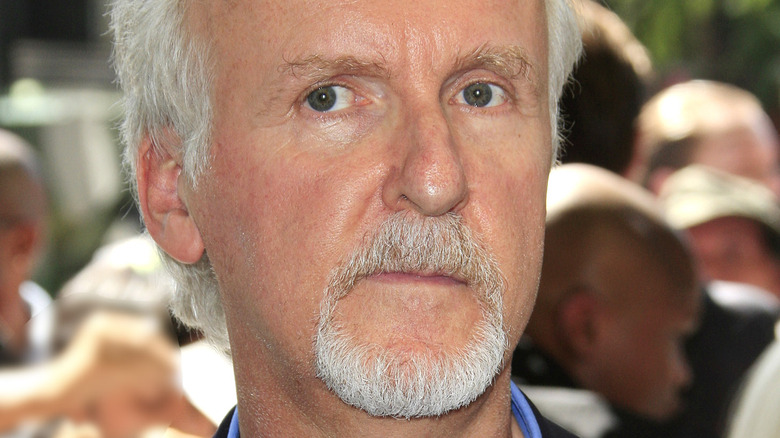James Cameron Doesn't Care If 3D Cinema Catches On In Mainstream Hollywood
When it comes to 3D cinema, James Cameron is the king of the world. The director of such iconic films as "Aliens," the first two "Terminator" movies, "True Lies," and "Titanic" has always been on the cutting edge of film technology that has seen a ripple effect throughout the industry. From his groundbreaking use of computer-generated imagery (via The Guardian) to the development of underwater filming techniques (via SyFy), Cameron's never-ending passion for innovation is all too infectious.
The Canadian filmmaker brought that passion to the next level with 2009's "Avatar." Not only was the film's stunning use of motion capture performance and digital worldbuilding that brought the planet of Pandora to life considered game-changing, but its use of 3D technology only enhanced these innovations, breaking box office records in the process (via Collider) as a result of audiences wanting to be wowed by the grand-scale sci-fi fantasy epic. As with many of Cameron's past filmmaking breakthroughs, "Avatar" helped 3D technology skyrocket into the mainstream throughout the early 2010s (via Offcultured).
Over time, however, 3D has become more of a gimmick in the public eye, with record lows for the format being reported in recent years (via Variety). While many would see this as a concern for Cameron with the release of the long-awaited sequel "Avatar: The Way of Water," the director himself couldn't care any less.
Cameron only cares that the option is still available
Many have questioned the eventual success of "Avatar: The Way of Water" given the lack of interest in 3D movies (via CNN). However, for director James Cameron, what matters more is that the option to use the technology is there. In an interview with Deadline, when the director was asked if the sequel might help birth a newfound interest in 3D, he replied, "I kind of don't care if other filmmakers want to do it as long as all that's out there and I can still do it. ... As long as the installed base is there for us to screen on it, that's all I care about."
However, Cameron is more than willing to show other filmmakers how to use the techniques that he and his team developed to avoid the headache-inducing strobing effect common in 3D cinema in order to keep the infrastructure required for the technology intact. "If it had died off in popularity in such a way that they took that out of the architecture of the projectors and servers, that would have been heartbreaking," he concluded.

